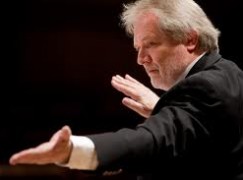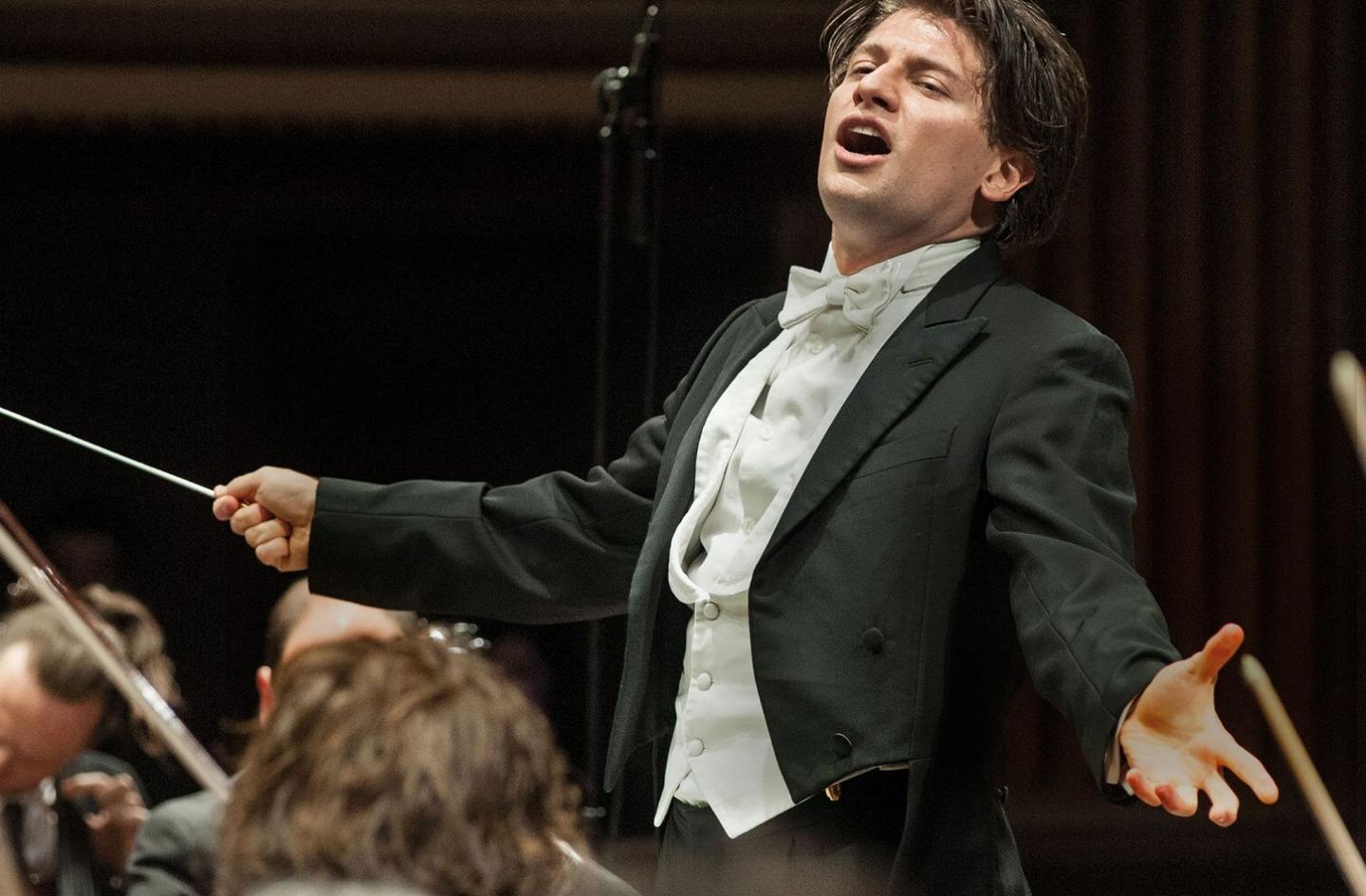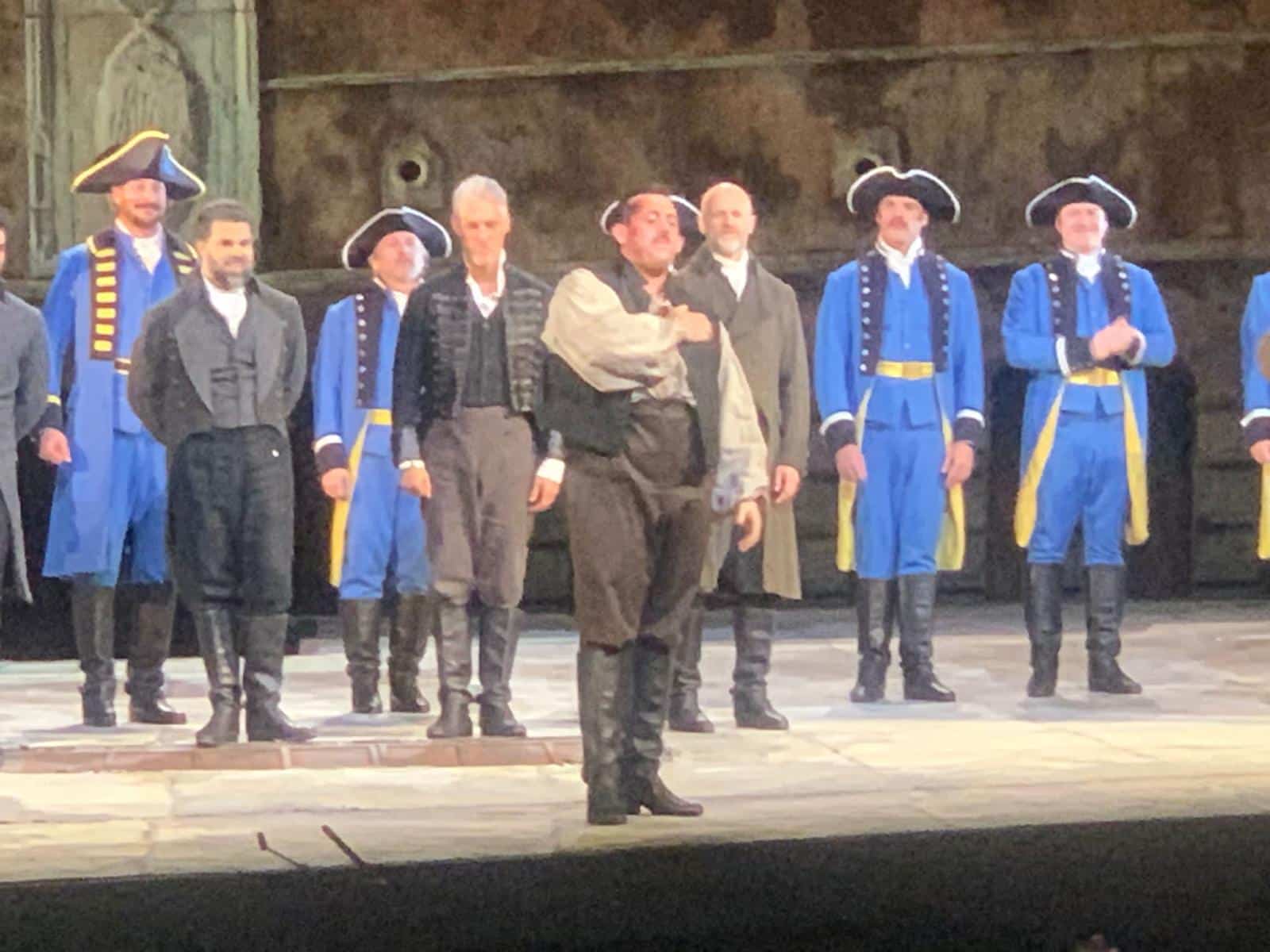Composer wins the 2018 Goethe Prize
mainPeter Eotvos, 74, Hungarian born and widely performed, will receive the Goethe Medal in Weimar.


Peter Eotvos, 74, Hungarian born and widely performed, will receive the Goethe Medal in Weimar.

The US violinist has announced she is still…

We gather that Juilliard has summarily fired a…

The Metropolitan Opera has appointed Daniele Rustioni as…

First reports from British tenor Freddie de Tommaso’s…

Session expired
Please log in again. The login page will open in a new tab. After logging in you can close it and return to this page.
Composer – and conductor, too! His rendition of Schönberg’s “Variations for Orchestra” is terrible, though. Much too fast, at least for my taste: https://www.universaledition.com/ue-magazine/wolfgang-rihm-on-schoenberg-s-variations-op.-31
? . . .
Really!?! . . . who could tell!
I could
I wonder what Goethe would have thought of this:
http://www.youtube.com/watch?v=u8fqnipmUPA
http://www.youtube.com/watch?v=TyvL5MaN52U
http://www.youtube.com/watch?v=2Z48W6CW6wY
Goethe has become the symbol of German civilized values, Enlightenment values, artistic classicism, one of the building blocks of the concept of Bildung, of continuity of culture, of beauty in all its forms, and a constructive vision of human life in spite of its dark shadows.
Eotvos however, belonged to a time and generation and place when and where artistic liberation from tradition meant total freedom to pursue any avenue of exploration, including the idiotic ones – with only one taboo: aestetics which could be related to the musical culture which had limited itself to the contribution of civilized values, of which Goethe is the symbol and expression. Why? Because WW II had ‘proven’ that the culture which produced Bach and Beethoven and Goethe had also produced the holocaust, so: forget about it.
What does this medal mean as to the intentions of the Goethe Prize? That Germany with its Goethe has finally embraced Western progress, including the equality of all sounds in a musical context?
We know of the recent debacle of the Echo award and the German hiphoppers.
Thank you for introducing me to Eötvös’ Speaking Drums! What a fabulous piece….
dreck. I can tolerate the snatches though.
Let’s ask that question the other way around, just to play devil’s advocate: would anybody pay attention to Goethe if he were writing his stuff today? (I think they would, but it might be just as marginalized as Eotvos is).
In 10 or 15 years time, all new music will be tonal and traditional, and this music will only be something for academis to dig-out and write papers about, researching what could have been the reason for its being performed in the 20th century and a little bit of the 21st.
Yes, but ‘they’ were saying just that 20 or 25 years ago.
The freezing of postwar Stunde Null tries to stop the clock ticking, but that cannot hold for ever.
Borstlap writes: “In 10 or 15 years time, all new music will be tonal and traditional”
Just because you want this to be true will not make it true. I suspect that music will still be composed in a variety of styles in 20 years times, including some “Modernist” music. Maybe the best music will do something we haven’t yet thought of. Or combine different traditions (of which “Modernist” music is one) in unexpected and new ways.
However, we can be pretty certain that Borstlap will not have won an audience in the concert hall for repeat performances of his music.
What a nonsensical comment…… quarrel at home?
If you look at orchestral concert programmes over the last 15 years, it is clear that the aggressive type of new pieces like the feminist variety:
http://www.youtube.com/watch?v=FmWslEUpf9s
… are gradually disappearing and forwarded to specialist festivals and/or ensembles which draw its own audience, hungry for progressive, thoroughly neurotic identity confirmation.
Tonal music however, is increasingly appearing on orchestral programs, especially in the USA where there is less of a postwar taboo on tonality, partly due to the populism of minimal music (what’s in a name?). It is a broader movement, moving away from clearly destructive tendencies, in an attempt of a revival of the musical tradition, in one form or another. This is not a personal opinion but a real tendency. (Some examples: Paul Moravec, Jonathan Leshnoff, Reza Vali, Daniel Asia, Stephen Albert, Aaron Jay Kernis, Jennifer Higdon, Pierre Jalbert, Daniel Gilliam,Jake Heggie, Lera Auerbach, Richard Danielpour – this only in the USA and they are regularly performed and receive commissions; in Europe: Nicolas Bacri, James Francis Brown, Richard Dubugnon, David Matthews, Wolfram Wagner, Karol Beffa, John Kinsella, Peter Fribbins, and others.) Cynical people like the author of the comment above don’t like this, maybe because they prefer nonsensical utopia; but regular audiences for classical music are quite relieved to get something more digestible than mere sound patterns presented as something ‘interesting’ and ‘new’ (both mostly untrue).
In Germany, modernist nonsense is still the obligatory new music aesthetic, for historic reasons, because a modernist German is a good German:
http://www.youtube.com/watch?v=jwlCD2y2tBA
Of course modernist sound art will remain part of the pluralistic offerings of culture, but only in the margins where it is in these days trying to find a survival basis. But that will be an excentric, rudimentary art form for people for whom music is too difficult, and who lack the capacities of perception for music. Nothing wrong with this….
New music since WW II is in a mess, for various reasons, and postwar atonal ideology is one of the most serious causes. It’s products are not music, but something totally different and its claims to replace tonal aesthetics was something like a cultural crime. In our days classical music as a whole is under threat, and modernism is one of the factors helping it being undermined. So, we have the choice on which side we want to be.
I had no idea that Schoenberg, one of the best, admired the Enigma Variations. Rather chuffed to be honest and for some reason it put me in mind of Previn’s desire to see Boulez explain Hiawatha to a prom audience.
Yes, it’s a good introduction to op.31, and that was unknown to me about Schoenberg’s study of the Enigma Variations!
I particularly like this little statement from Rihm:
“It is the same with scales. Mozart made something of them. But Dittersdorf? In other words, a row can be transformed into music or into something dull. (…)”
I don’t think that is true. You cannot compare a scale with a 12-tone row as if they were comparable things. A scale is free material, the proportions of which are based upon natural tonality; a tone row is a construct in which such proprotions are cancelled, that was the whole idea of the system. Hence the contradiction of the attempts to combine tonality with 12-tone system.
Also the comparison between ‘interesting’ use of a scale and a ‘interesting’ use of the 12-tone system is moot: the best use of scales can produce great music (Mozart), the best use of the 12-tone system can produce interesting patterns (Boulez). If there is some element of music to be found in 12-tone works, that is because tonality has been incorporated within the system, against the idea of the system itself.
The 12-tone system was a way of ‘chromaticizing’ music, and to have music functioning not within keys and scales, but in a continuum where it could move freely. The music which does indeed achieve this, is Schoenberg’s ‘free atonality’ period music (which is in fact not atonal) and the music of Debussy (Jeux), both highly chromaticized music but very different in effect.
http://www.youtube.com/watch?v=dwnBAtpqOJw
http://www.youtube.com/watch?v=Wt2k7TwUK9U
I have heard a lot of Etovos’ music over the last few years and even bought some and I usually find it stimulating and enjoyable. I think it can be enjoyed by most listeners with modestly eclectic tastes (unlike, for example, most Boulez or Stockhausen). As for his conducting, his Bartok is excellent (a great Bluebeard, a very good Mandarin), he did a very good job with concertos by Bartok, Ligeti, and himself with Kopatchinskaja, and his Beethoven 5 is tremendously exciting and well worth searching out. I’m happy with this.
Are you his press agent, by any chance? Well done, Sir or Madam!
We live in a pluralistic culture in which there is nothing against appreciating Eotvos, as there is nothing against being profoundly touched by Tracey Emin’s ‘Bed’ or Damien Hirst’s cut corpses in formaldehyde. The only problem is that some art works are considered more pluralistic than others.